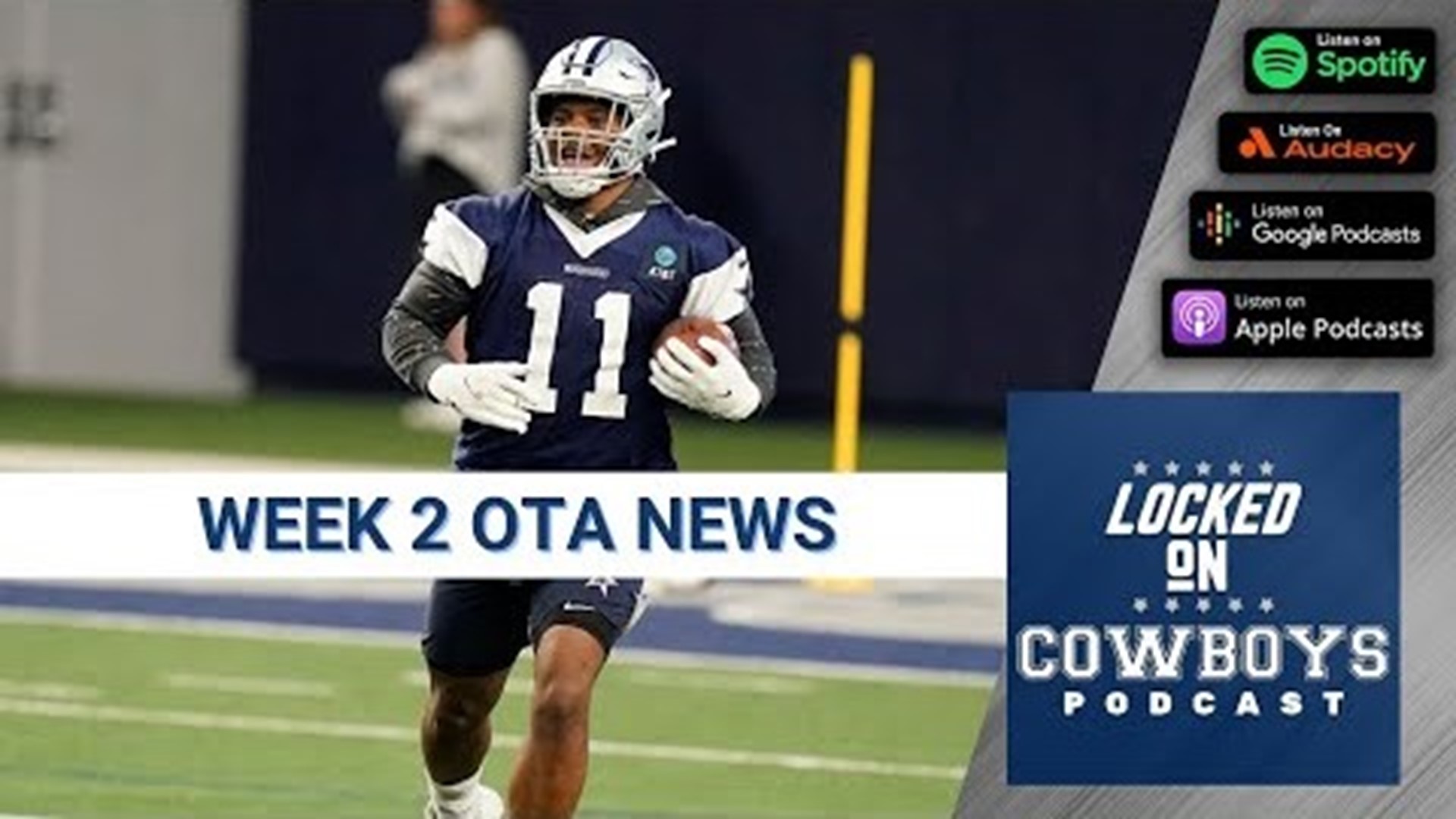DALLAS — The Dallas Cowboys had a plan in place this offseason when it came to their offensive talent and they executed it efficiently. Trading wide receiver Amari Cooper was part one and that move was followed by signing fellow wideout Michael Gallup to a long-term deal before using the franchise tag on breakout tight end Dalton Schultz.
When the Cowboys got under the salary cap with these moves, the prevailing thought was that the team would then work on a long-term deal with Schultz to lower his cap number so they would have more freedom in free agency.
Dallas has been well under the cap for a few months now, but it looks like there hasn’t been much movement in getting Schultz signed to a multi-year deal. It also seems as though Schultz and his agents are getting tired of waiting on a legitimate offer from the Cowboys as he is expected to miss the remaining voluntary organized team activities before training camp.
The absence of a quick deal shouldn’t come as a surprise to Schultz. The Cowboys’ front office routinely drags their feet in contract negotiations. Go down the list of the most highly paid players for Dallas in recent years and you’ll find that the team took their time getting them signed.
Quarterback Dak Prescott can probably tell Schultz a tale or two about the contract game, so can running back Ezekiel Elliott, defensive end DeMarcus Lawrence, and, ironically, the recently traded Cooper.
Getting lucrative deals done with the Cowboys and lead negotiator Executive Vice President Stephen Jones is rarely a quick proposition. Long-term deals and the Cowboys are usually painstakingly long processes that only get done at the last minute once everyone’s feelings have gotten hurt a little, so this is nothing new in Dallas.
However, even so, this isn’t time to panic; the Cowboys and Schultz have until July 15 to get an extension worked out, so there is time for a deal. After that date, no agreement can be made and Schultz would play the season under the tag, which pays him close to $11 million this year.
Yet it’s understandable why Schultz wants to accelerate the contract talks. Waiting until the final days can put a deal in jeopardy, and Schultz likely doesn’t want to go into a season without having the financial stability for his future.
Having a long-term deal with Schultz would also be beneficial for the Cowboys if indeed they plan on having him around for longer than one more season. Agreeing to a new deal could give the Cowboys some extra salary cap dollars to put back into the team for the upcoming season.
After gaining the $10 million from La’el Collins’ post-June 1 release, Dallas had over $22 million of cap space to use and could open up more money with a deal for Schultz that pays him less this upcoming season than the inflated franchise tag price. That is money the Cowboys could be using to improve on the roster for the upcoming season.
However, knowing how the Cowboys operate, that likely isn’t the case.
After a season where Schultz put up solid statistics with Prescott back under center, the franchise tag showed that the Cowboys are eager to have the emerging TE back. Schultz was second on the team in catches, targets, and receiving yards, while tying Cooper for the lead in touchdown catches with eight. Those are numbers that former All-Pro Jason Witten used to put up for the offense, as Schultz became for Prescott what Witten was for former quarterback Tony Romo.
However, there could be reasons for the Cowboys to stall out on getting a deal done. Only the team knows what those might be, but we can speculate.
There have been some great reviews of fourth-round tight end Jake Ferguson in the first round of OTAs and if the team believes that he can take over for Schultz after his rookie season, they would be wise to not offer a long-term deal. There would be no reason to pay a tight end long term if they’re close to replicating his output on a rookie contract.
In addition, the Cowboys might not be convinced Schultz is worth paying top end money and want him to prove that he can replicate last season’s success. If he does, the team would have another decision to make on Schultz, pay him, tag him, or walk away. With the high-level quality free agents that Dallas might have to pay after next season, they may not want to use money at the tight end position.
Both reasons above go hand in hand and it could all mean that the Cowboys are simply waiting to see what they have in a younger, cheaper version of Schultz before shelling out big money.
No matter the justification, the Cowboys appear willing to move slowly on a long-term deal with Dalton Schultz and that isn’t sitting well with the player. It also likely doesn’t sit well with the team that Schultz is skipping workouts, even the ones that are voluntary. Schultz is under no obligation to show up for the current workouts until they’re mandatory.
This is how the game gets played when a team uses the franchise tag on a player; the Cowboys and Schultz appear on opposite ends of the spectrum right now. There is still time to get a deal done, but it’s clear that both the Cowboys and Schultz are currently at an impasse and Schultz is angling for a resolution with a franchise that is slow to act.
Do you think Schultz and the Cowboys will work out a contract extension? Share your predictions with Ben on Twitter @BenGrimaldi.

